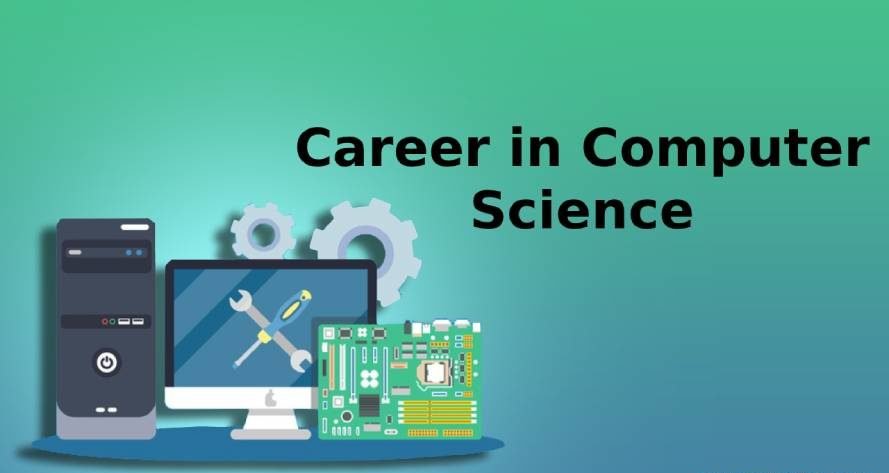Back to: COMPUTER SCIENCE JSS3
Welcome to Class !!
We are eager to have you join us !!
In today’s Computer Science class, We will be discussing Computer Career Opportunities. We hope you enjoy the class!

CAREERS IN COMPUTER INDUSTRY
Now a day’s computer industry is the largest industry where jobs are created for thousands of people and primary business people and primary businesses which are computer-related jobs.
Computers have become a ubiquitous part of modern life, and new applications are introduced every day. The use of computer technologies is also commonplace in all types of organizations, in academia, research, industry, government, private and business organizations. As computers become even more pervasive, the potential for computer-related careers will continue to grow and the career paths in computer-related fields will become more diverse.
The career opportunities for computer science graduates can be classified into different categories. Examples are:
- General business and IT development
- Computer equipment field
- Computer software field
- Computer service and repair filed
- Computer sales
- Computer education and training field
- IT consultation
- Programming and Software Development.
- Information Systems Operation and Management.
- Telecommunications and Networking.
- Computer Science Research.
- Web and Internet.
- Graphics and Multimedia.
- Training and Support.
- Computer Industry Specialists.

Programming and Software Development
- Systems analyst – Determines an organization’s needs and designs programs to meet them. Acts as a problem solver who specialize in how information flows from information sources to computers. Supervises lower-level programmers.
- Systems consultant – Works under contract to install or configure hardware or software, write or customize programs, or otherwise help solve information processing problems for an organization. Business-related courses are helpful.
- Software engineer – Designs and writes complex computer programs as part of a software development team. Applies principles of computer science to solve practical problems.
- Systems programmer – Designs and writes programs that interface with a computer’s low-level operating system, such as device drivers and utilities.
- Database analyst – Designs and creates programs used to collect, maintain, and analyze data needed by the business, government, or other institutions. Adapts programs to changing business needs.
- Artificial Intelligence programmer – Applies principles of artificial intelligence to design and implement systems that perform complex tasks. Applications include expert systems that apply rules to make decisions, such as scheduling freight shipments or diagnosing disease; pattern recognition systems that give robots the ability to see and understand objects in their environment; neural network programs that can learn to perform tasks by constantly re-evaluating their performance.
- Scientific applications programmer – Works closely with scientists and engineers to write programs that simulate natural phenomena or analyze experimental results, or apply scientific or engineering principles to research or manufacturing.
- User interface designer – Designs the menus, icons, and other features that people will use to interact with a computer program or operating system. Needs to have empathy with computer users and artistic sense of composition.
- Embedded systems application programmer – Designs and develops applications for appliances and entertainment products such as PDA, mobile phone, mp3 player.
Information Systems Operation and Management
Electronic data processing (EDP) auditor- Closely examines data processing operations to guard against loss through mistakes, carelessness, or fraud. Often work in banks, insurance companies, accounting firms, and other organizations that use a large amount of financial data.
Database administrator – Takes overall responsibility for the usage, accuracy, efficiency, security, maintenance of an organization’s database systems. Coordinates development and use of data resources.
Systems administrator – Responsible for managing the operation of a multi-user computer system or network so that it runs reliably and meets user’s needs; updates and configures software and hardware; provides assistance to users and managers.
Computer security specialist – Protects computer systems from illegal intrusions, viruses, data theft, fraud, or other forms of tampering.
Management/IT consultants – Uses problem-solving skills and computer knowledge to solve business and management problems for organizations and foster improvement in areas such as organization structure, business communication, and productivity. Defines and analyzes the problem, interviews potential employees, develops possible solutions and presents options to the client.
Information systems manager – Oversees all operations in an organization’s information system department, including technical support, training, network, and database operations. Ensures that everyone in the organization has timely, reliable access to the computer system and its databases and other resources.
Chief information officer (CIO) – Serves as the highest information services executive for a major corporation. Responsible for long-term planning and setting organization-wide policy and standards relating to all computer-related activities.
Telecommunications and Networking
Network engineer/consultant
Plans for the installation or expansion of local or wide-area computer networks. Performs complex configuration of servers, hubs, routers, and other network communications equipment. Writes scripts or programs to automate network operations.
Network administrator
Takes overall responsibility for the operation and planning for a local or wide-area computer network. Plans expansion; selects appropriate network operating system and software tools; configures major features; deals with the connection between local network and Internet; establish procedures for support staff and users.

Computer Science Research
Computer scientist/researcher
Applies theoretical expertise to complex problems and develop innovative ideas necessary for the application or creation of new technology. They usually work in research labs or academic institutions.
Computer science professor
He / She teaches college courses in computer science theory, performs research and supervises student research. May serve as a consultant to government or business.
Artificial Intelligence researcher
Develops programs to imitate the thinking and reasoning processes of the human brain; for example, recognize voices and objects, speak in a humanlike voice.
Data miner
Analyzes databases in business, government, or scientific applications in order to extract additional information or find useful patterns. Needs familiarity with major database and statistical packages.
Bioinformatics specialist
Organizes and manipulates information relating to genetic sequences, molecular structure, and other data relevant to the biological sciences. Should be familiar with genetics and biochemistry.
Medical imaging specialist
Develops image processing and pattern recognition algorithms for analyzing medical images to diagnose disease.
Web and Internet
Internet applications programmer
Develops programs that add features such as forms and animation to Web sites or that provide tools to help users get the most out of the Internet.
Internet consultant
Uses some combination of analysis, design, programming, and support skills to help clients with the design of Internet sites and configuration of Internet software and connections.
Webmaster
Creates or maintains a Web site. Provides content and programming or supervises writers and programmers. Monitors the performance and popularity of the site. Provides secure forms and transactions for Internet-based businesses.
Internet advertising designer
Creates effective advertising features for Web sites, including animation, sound, and text.
Graphics and Multimedia
Animation/Special effects developer
Develops software programs for creating sequences of computer images for games or movies.
Multimedia developer
Uses design and programming skills to create interactive multimedia products that combine sound, images, and text.
Computer game designer/programmer
Designs or writes computer games or game engines. Develop algorithms that make the characters realistic and intelligent.
Electronic sound producer
Creates music, voice, and sound effects for multimedia or computer games. Integrates sound into the overall design of the multimedia product.
Training and Support
Technical support representative
Answers questions from computer users and solves problems with the installation or operation of the software. Researches problems using manuals, help files, and online knowledge bases.
Trainer, software applications
Teaches specific courses in computer software or operating systems. May work within a corporation or at a school.
Technical writer
Writes instructional guides and other materials that explain how to use computer systems, software, operating systems, or programming tools. Researches and writes reviews and feature articles suited to specific reader profiles.
CERTIFICATE: This is the process of verifying the technical knowledge of an individual who has demonstrated competence in a particular area, today there are more than 200 certificates available, such as.
- MICROSOFT CERTIFIED APPLICATION SPECIALIST
- MICROSOFT CERTIFIED APPLICATION PROFESSIONAL
- MICROSOFT CERTIFIED DESKTOP TECHNICIANS and so many more.
EVALUATION
- Briefly explain the career opportunities of computer science graduates
We have come to the end of this class. We do hope you enjoyed the class?
Should you have any further question, feel free to ask in the comment section below and trust us to respond as soon as possible.
In our next class, we will be talking about The Qualities of a Good Computer Professional. We are very much eager to meet you there.


Define carrier opportunity in computer